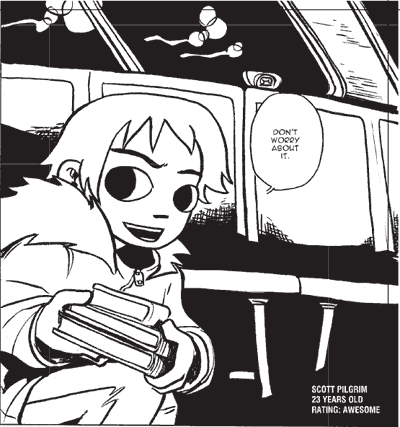We3’s Cages
I didn’t get to be among the first to write about We3 #1 because I was thinking about other things, about focalization and whether it’s a technique particularly well-suited to comics. I hoped I could tie that in to my talk about We3, but I’m not sure I can, so focalization will have to wait until later. However, all that thinking about focalization got me thinking about perspective, which is at the core of both art and story in We3.
Specifically almost everything is claustrophobic, a word Marc Singer used as well, with tightly packed panels on many pages and very few full shots of anyone. Humans are viewed in part from the animals’ perspectives, not caring whether the head or face is caught in any given shot, and this is highlighted by the focus on Roseanne Berry’s kind face and eyes, which show up more than others’. Panels and perspectives are always limited not just by the edges of the characters’ visions but by the rigid boundaries of their very lives. The scientists running the We3 program exist in a world as regimented and oppressive and limiting as the metal bodysuits of their animal subjects. This is the kind of secret work no one is allowed to talk about because it doesn’t officially exist, except that as David Fiore notes, the work itself is alive and sentient, able to speak (albeit hesitantly) of its history and suffering.
David also thinks there is a moment of deluded, contested freedom at the end, in the final full-page image, which he considers an homage to the Hudson River School. Maybe, but I think it’s more than that. I can’t imagine a Hudson River School painting that looks down a hill this way; they were totally concerned with light and looking up and out. Instead I wonder if perhaps the painting is what the arriving helicopters see, looking out into the pristine light and seeing (or not seeing?) the shining green hills beneath them. The animals, our heroes, are locked within the painting still, mostly out of view, hidden under this veneer of assumed tranquility.
So where is the freedom? I said almost everything is claustrophobic, but perhaps what’s more interesting about it is that no one actually seems to feel claustrophobic on the inside. They’ve all been trained to know their boundaries, to accept the little parcels of themselves. But there are breaks, cracks. In the first, violent full-page image, an image no one could ever really see, we see the one way to be free, to be unconstrained, to have nothing holding you together anymore. And then we find out that for We3 the expectation is that the only way to be decommissioned, to be out of the metal suits once and for all is to be out of everything forever. Is death the Great Escape?
Roseanne Berry seems to think so, allowing her charges freedom in an action she hopes will bring her death and thus redemption for what she has done to them and, in the process, to herself. David Allison considers her attitude “unnerving,” but it occurs at a crisis point, at the moment where freedom is being defined. As We3 charge past her and she waits for the release of death, they choose instead a moment of freedom and focalization outside this binary between death and captivity. For one moment in the whole book, the animals soar across an amazingly starry sky and they understand freedom and their relationship to it as being equivalent to this stark, heroic, fleeting pose. By the time they reach the woods, their freedom has been limited because their individual desires surface, because they are no longer a sleek unit, but for that one moment they have become everything they dreamed of being.
After that brilliant dream, they fall to reality, and they are caught in a mesh of new limitations, the restrictions enforced by the humans (and animals) who seek them and the restrictions they will find when they reach the end of their own abilities and interests and willingness to keep pushing at the boundaries, breaking through the fences. We readers sympathize with We3 because they’ve been so deeply wronged, because they’re such adorable mass murderers, because we can easily put them in our categories of what it means to be a dog, a cat, a rabbit. I assume they will defy these expectations, or at least push up against the edges, but at their cores, that’s what they are, limited both by what they are and what they’ve been forced to be but willing to push for something else. And maybe that’s what makes them sympathetic, because we’re all fallen and yet looking for something else, looking for a home even when we know there is No Home. It still seems better than death/complacency.

